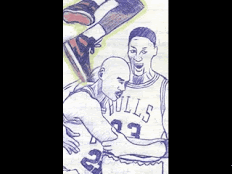According to John Godo, a UPC champion in Arua (His office is about 200 metres beyond Kamure Park on the down town Adumi Road), culture is defined as "a way of life of a given society especially the general customs and beliefs of a people at a time and place. It is the only birthmark that identifies us by tribe as Baganda, Bateso and Banyankole. It describes Ugandan unity. A nation without cultural heritage is not worth a national status. In the past, the economic institution revolved around family, clan and the traditional leader."
Ugandan Senior Citizen Godo revealed that the peace in the Arua District area was actually "brought by Lugbara elders who called the four groups of rebels to lay down arms." These groups included West Nile Bank Front (led by Ali Bamuze who is now a Lieutenant General in the UPDF national Army), FUNA (Former Ugandan Army), Rescue 1 and 2.
Culture preserves oral literature, social norms, traditional knowledge, enhances creativity, disseminates information, cements social cohesion and a means of expression. All its forms of diversity should be encouraged. Culture is better understood through education and helps youth grow in orderly stages with a sound and social moral entity. They stay awake till late in the night listening to old men's tales while drinking hot water. (My dada once informed me that hot water without sugar was named 'ibede' during Amin and Obote's regimes because during functions, hot water would be left in a saucepan for people to fetch and drink with cups. "Ibe di" is a call telling people to fetch or scoop something.) Discipline and respect were emphasised around fires through stories and riddles, proverbs. These were called informal education. Although cultures differ, societies share a common training system to create ideal individuals who would fit in their community and be accepted. This education teaches young boys and girls as expected in society. It wasn't around discipline alone but catered for the mind, cultural taboos, dos and don'ts in society, clans and tribes plus technical skills for instance Okebu were iron workers, Buddu in Buganda were bark cloth makers. Those who mastered their skills well were regarded as High Class. They were elected as legislators to discuss wars, peace and conflicts. This skill produced an expert fighter called Embawu like Museveni (President of Uganda since 26th January 1986, he was born around 15th March 1944).
Culture can be understood through Civilisation. Changed Society can only be explained through Performing Arts (Music, Dance and Drama); Musicians are known as advisers. It's a means of keeping history.
Wars can be overcome through dances and drama like the Acholi and Madi have war dances that reveal history. Peace can be brought through culture for example in 1980, there was a war in the Soroti area. The Teso came up with a means of stopping the war. A Professor wrote a play whose Teso title is translated as "What Do We Do?" acted by Makerere University Kampala students. The rebels and government forces came together to enjoy the play.
This AikoGraphics (+256-781-345712) Cascade blogs about an amazing Cultural Heritage and includes some of the Old and New Things you need to know concerning the Lugbara World - modern, modest, distinct, wild and truly African. The Lugbara are the Largest Tribe in West Nile... MUNGU ni ambo [GOD is great]!
Aiko TV

Awa'difo mini nerisi...
Nda
Lugbara AI

Ojapi: Transcribe, translate, chat (+256-781-345712)...
O'bi Ni Ne Ndeni [Most Viewed]
-
Pronunciation in Lugbara has diphthong clusters and other noteworthy phonetics including the following: aa as in bat , for example embata...
-
My dream is to post a plethora of Lugbara lyrics and this is one of the very first projects I have indulged myself in. J.M. Kennedy is a ver...
-
e’yo [message, issue], o’diru [new], waraga [letter], 'ba [people], tualu [together], buku [book], isu [find], efini [meaning], osita [b...
-
[INSTRUMENTAL:] [CHANDIRU WHISPERS:] Agasi, aga'bo, agasi! Agasi, aga'bo! [VERSE ONE:] Ini ce ra, ale mi ra! Ico aco ku, ah...
-
"Ngoni?" is the standard Lugbara Greeting (meaning ‘How are you?’). "Muke!" is the Response when you are fine. Neverthel...
-
The foreword of this book is written by Jason Avutia (The Chairman of LULA and an Elder), preface is by Lulua Odu 24th August 1996 Arua, Wes...
-
Hiphop and Reggae are very dynamic and Black Harmony (from West Nile) are the supreme flag bearers of these genres in Lugbara-land. I prefer...

